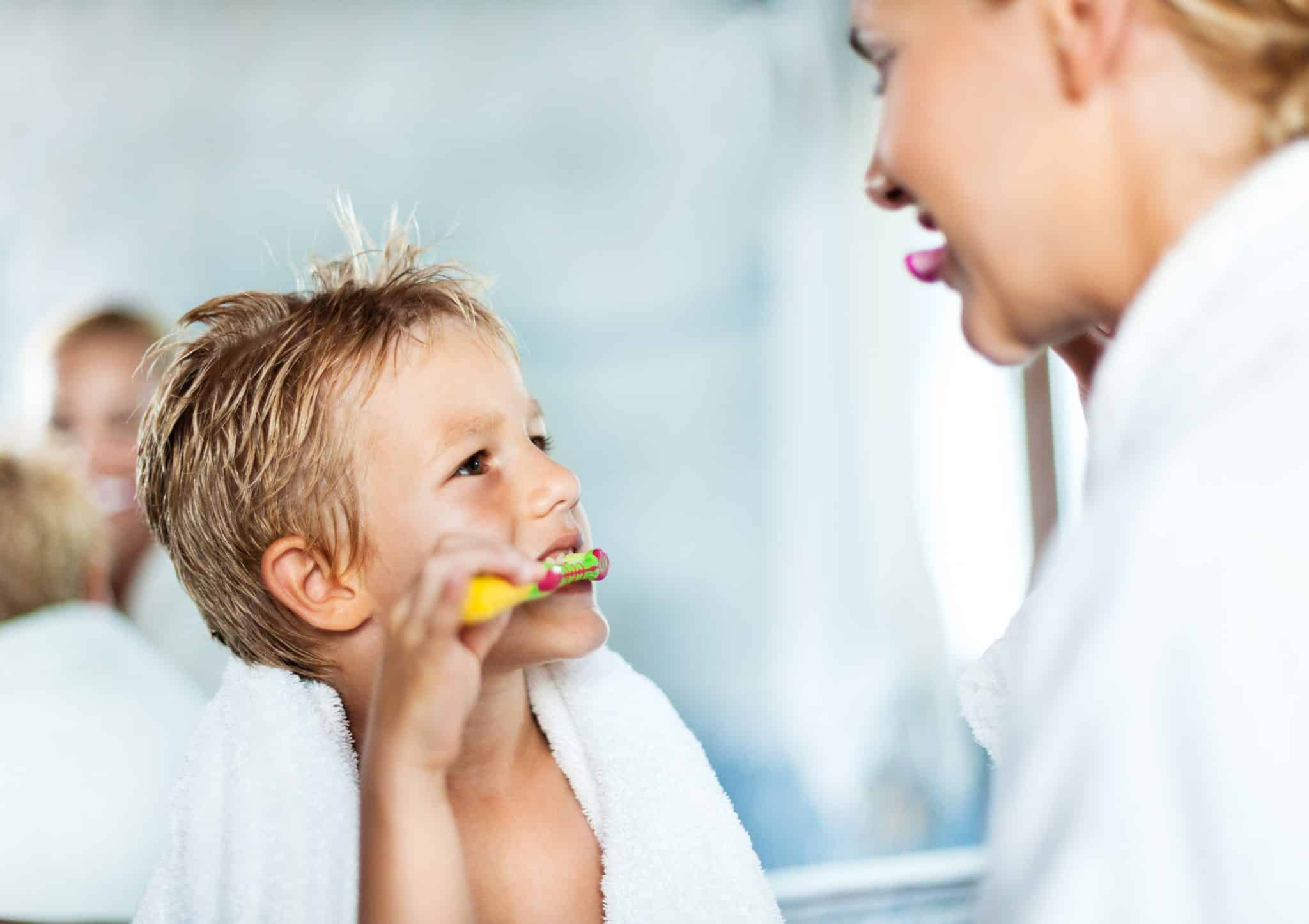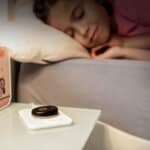Use Everyday Routines to Build Language Skills
Routines with your child, like setting the table or getting ready for bed, don’t need to be boring. Use routines and repetition to help your child build language skills in fun and playful ways. The activities below are ideal for children ages three to nine.

Repetition helps build language skills. You can build and reinforce your child’s understanding of them by saying the same words or phrases each time you perform an action. While following everyday routines—such as bathing, cooking, putting away toys, getting ready, etc.—you can help your child learn specific words and phrases. And the following strategies don’t even require any special toys or materials.
Seven Strategies to Support Learning
1. Use Simple Language
Use straightforward but meaningful language to explain things to your child. Give simple directions to let them know what they should do.
- “Up, up, up! Hop up onto your bed.”
- “Your pajamas are under your pillow.”
- “Come and sit next to Dad for dinner.
2. Set the Scene
Explain what you’re doing and why. Let your child know what time it is or what activity they are about to do so they can get ready.
- “It’s nighttime, time for bed!”
- “It’s almost time for an afternoon nap. Let’s read a book.”
- “Dinner’s ready! Let’s set the table together.”
- “We need to get ready for our listening lesson. What do we need to prepare?”
3. Narrate Activities
Talk about what you’re doing. This way your child can associate words with specific actions.
- Say, “Squeeze the toothpaste onto the toothbrush,” as your child gets ready to brush their teeth.
- While you’re holding out clothes for your child to wear, say, for example, “Here is your shirt.”
- As you get ready to leave the house, say “I have your experience bookand a snack. I have my purse, and my phone and keys are in my bag. We’re ready to go!”
4. Name Each Object
When you use or approach a particular object for the first time, say its name.
- “We need knives and forks to set the table.”
- “Don’t forget to tie your shoelaces.”
- “Please put your cars in the red box.”
5. Imitate Sounds
Your child will hear many sounds throughout the day, and you can repeat those sounds to make your child more aware of them.
- “The bath water goes splash, splash, splash!”
- “Pull the zipper up, zip, zip, zip!”
- “Close the lid of your toy box—crash!”
6. Ask Questions
By asking questions, you can encourage your child to say words or phrases. You can ask them the name of the object they are playing with or what sound it makes. Or ask them what they are doing or where things are.
- “What sound does your toy make?” If it’s a dog, for example, encourage them to say, “Woof, woof!”
- “Where are the broom and dustpan?” Look together and encourage your child to say, “In the closet!”
- “Time to brush your teeth. What should we do? Brush, brush, brush!”
7. Give Options
Ask your child questions with two options. These questions are easier to answer than open-ended questions, and your child can practice repeating a word you’ve just said.
- “Do you want the red shirt or the yellow shirt?”
- “Do you want to put the glasses or the plates on the table?”
- “Do you want to take a bath now or after dinner?”
Encourage your child to play an active role in these activities and engage with the words you’re using. By doing these exercises many times, you can help your child build language skills. Once they’ve mastered single words, start using short phrases, and then try using longer sentences. Frequent interactions with language will supercharge your child’s development!
For more tips to help improve your child’s language skills, check out this article about our tips for using smartphone or tablet apps.
And don’t forget to subscribe to the MED-EL Blog to get rehabilitation tips like these sent straight to your inbox!
Thanks for your message. We will reply as soon as possible.
Send us a message
Field is required
John Doe
Field is required
name@mail.com
Field is required
What do you think?
© MED-EL Medical Electronics. All rights reserved. The content on this website is for general informational purposes only and should not be taken as medical advice. Contact your doctor or hearing specialist to learn what type of hearing solution suits your specific needs. Not all products, features, or indications are approved in all countries.
Cate Asiimwe
April 20, 2024
Am grateful for these information, they help me to talk to parents with evidence. Thank you keep it up




Conversation
1 Comment